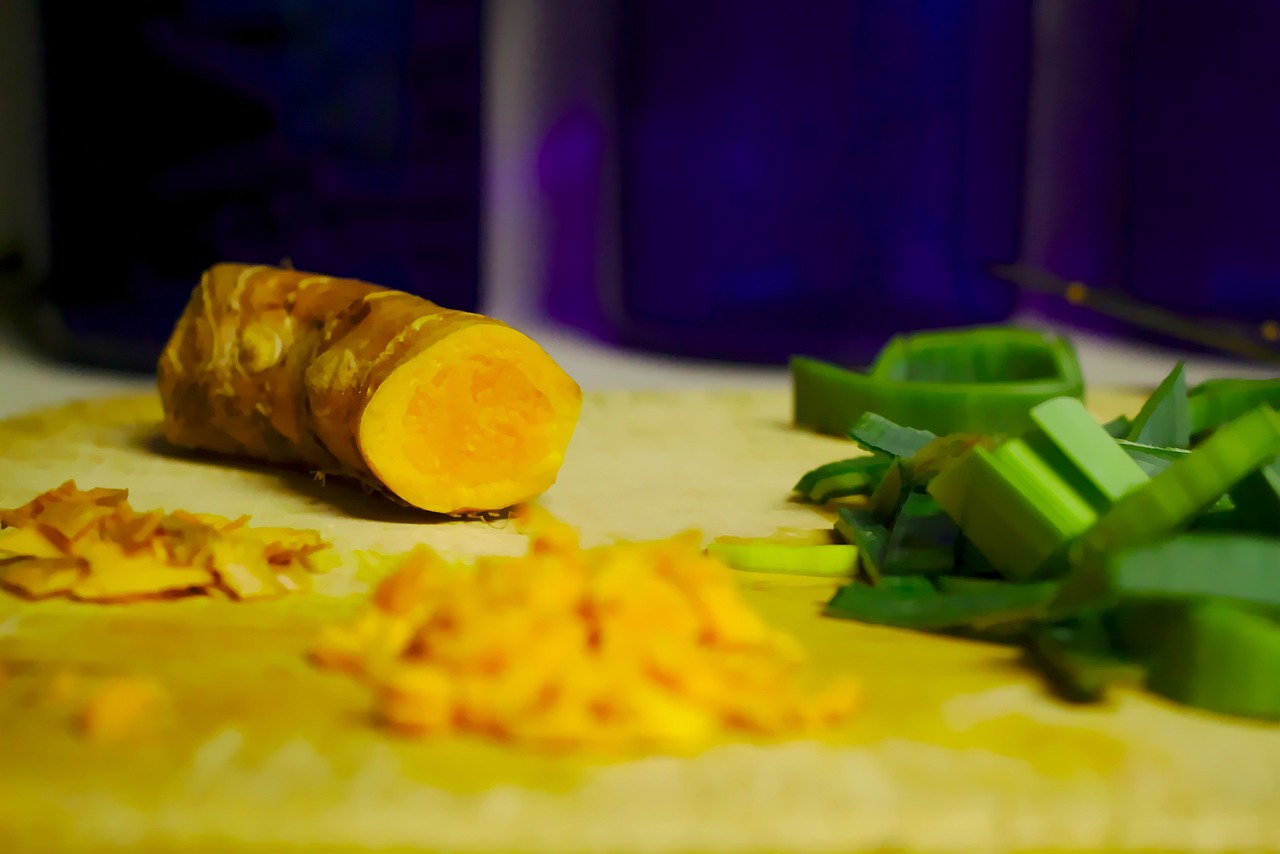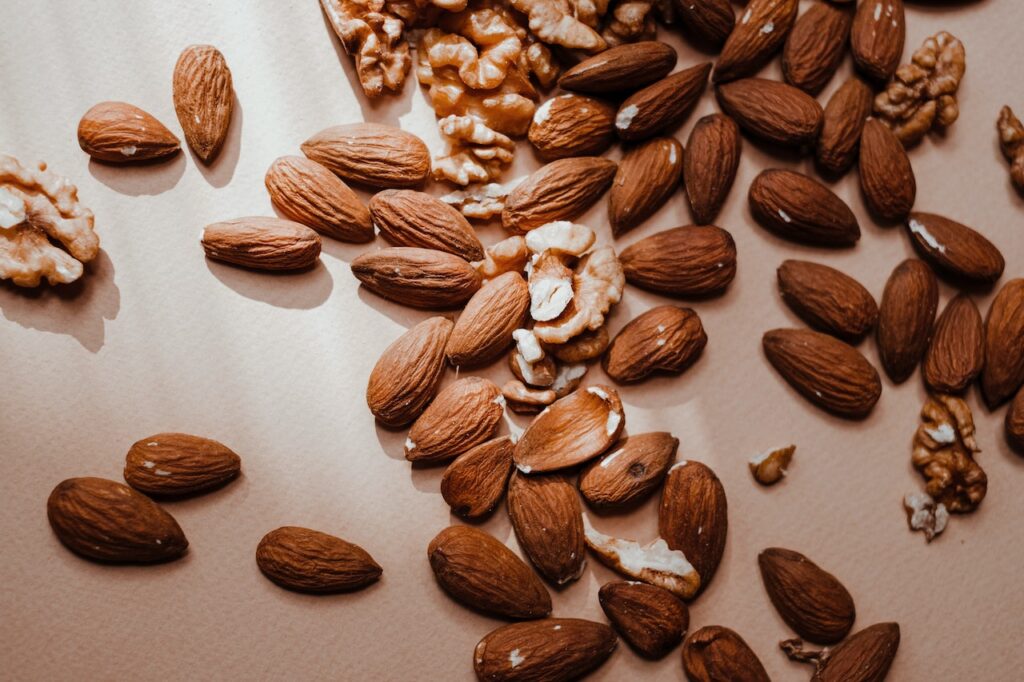Physical Address
304 North Cardinal St.
Dorchester Center, MA 02124
Discover Your Purpose
Discover Your Purpose

Inflammation is a topic that will be discussed today because it is becoming more significant in our fast-paced and frequently stressful lives.
Although you may be familiar with the term “inflammation,” did you know that it can significantly affect our general health and wellbeing? Our bodies naturally respond to damage or infection with inflammation, but when it persists over an extended period of time, it can cause a variety of health problems, including diabetes, heart disease, and even cancer.
The good news is that we can take action to lower inflammation in our bodies, and one of the most effective ways to accomplish that is through nutrition. We may aid in reducing inflammation and enhancing our general health by include anti-inflammatory foods in our everyday meals.
I am aware of how challenging it may be to treat chronic inflammation since I have personally experienced it. But I also understand the value of including anti-inflammatory foods in my diet because they significantly improve how I feel and perform on a daily basis. It can boost our energy levels, improve our sleep quality, and even improve the appearance of our skin!
Are you prepared to learn about the best foods that reduce inflammation in your body? Explore the scrumptious and wholesome foods that might make you feel your best now!
Which foods are considered to be anti-inflammatory foods?
Foods that reduce inflammation are a trendy topic in the world of health and wellness, and for good reason. These foods have the ability to lower inflammation in the body, which may have a variety of positive effects on health, including more energy, better sleep, and even healthier skin. But what are anti-inflammatory foods specifically, and how do they function?
Simply put, anti-inflammatory foods are those that include substances that have been demonstrated to lessen inflammation in the body. These substances may include phytochemicals, omega-3 fatty acids, and antioxidants. Typically, these foods can be found in fish, fruits, vegetables, nuts, and seeds. Berries, leafy greens, salmon, and almonds are a few examples of anti-inflammatory foods.

How then do these meals function to lower inflammatory levels in the body? It all depends on the compounds they contain, I suppose. For instance, omega-3 fatty acids, which are included in fish like salmon, can lessen inflammation by preventing the body from producing specific inflammatory substances. Contrarily, berries are a great source of antioxidants, which can fight off the free radicals that cause inflammation. Additionally, leafy greens are a rich source of phytochemicals that can help the body heal from inflammation.
You might be asking, “That sounds fantastic, but how do I include these items in my diet?” and I understand what you’re thinking. Simple is how I would respond to that: start small. To get the advantages of anti-inflammatory foods, you don’t need to completely change your diet. Start by including a serving of berries in your morning cereal, replace your typical sandwich with a salad of leafy greens, and experiment with including a dish of fish at least once a week.
It can seem difficult to include anti-inflammatory foods in your diet, but it’s actually not. Starting small and expanding from there is the key. Why not give these foods a try? They have the potential to significantly impact how you feel and perform on a daily basis. Both your body and your taste buds will thank you!
We are pleased to present this list of foods that can assist in reducing inflammation. We have discussed foods that are anti-inflammatory and how they function to lower inflammation throughout the body; however, today we are going to dive into more specifics regarding this topic. In this part of the article, we will discuss the top anti-inflammatory foods that you should think about incorporating into your diet, and we will also provide you with some helpful hints on how to do so in an easy manner.
The following are some of the foods that are best for reducing inflammation:
Omega-3 fatty acids are known to help reduce inflammation throughout the body and salmon is an excellent source of these acids. In addition to that, it is a good source of protein. Salmon is great anti-inflammatory foods.

Berries like blueberries, raspberries, and strawberries all include a high concentration of antioxidants, which are compounds that aid the body combat the free radicals that are responsible for inflammation.
Leafy greens like spinach, kale, and broccoli all contain a high concentration of phytochemicals, which have been shown to help reduce inflammation throughout the body.
Nuts, such as almonds and other types of nuts, are an excellent source of fiber, protein, and healthy fats. They are a tasty addition to salads as well as cereal.
Because it includes the compound curcumin, the spice turmeric has been shown to have anti-inflammatory effects. Turmeric is the best anti-inflammatory foods
Ginger is a root that is known to reduce inflammation and can either be grated or taken as a supplement.
Olive oil is a nutritious fat that can also assist the body fight inflammation. Olive oil has these two benefits.
Lycopene is an anti-inflammatory antioxidant that is abundant in tomatoes and is known to help lower overall inflammation in the body.
EGCG, which is found in green tea, is an anti-inflammatory component that helps reduce swelling.
Because of the high monounsaturated fat content, avocados have been shown to help lower inflammation throughout the body.
Now that you are aware of the most effective anti-inflammatory foods to include in your diet, the next question is how to work these foods into your regular meals. To reduce inflammation in your body, I recommend beginning cautiously and gradually incorporating more and more anti-inflammatory foods into your diet.
For instance, try incorporating a serving of berries into your morning meal, exchanging your typical lunch of a sandwich for a salad featuring leafy greens, and incorporating a piece of fish into at least one of your meals on a weekly basis. It could appear complicated to incorporate into your diet anti-inflammatory foods, but this is not necessarily the case. The key is to begin on a low scale and gradually increase it.
As you already know how important it is to including these foods in your diet, Here are some yummy and easy recipes that you can make at home using foods that fight inflammation. We’ve talked about how important it is to include these foods in your diet, but now it’s time to get creative in the kitchen!

Here are some recipe ideas for you to try at home, they’re not only delicious but also good for your body as they contain anti-inflammatory ingredients.
These are just a few examples of the many yummy and easy recipes that include anti-inflammatory foods. Remember, you don’t have to be a professional chef to enjoy these foods; just get creative and have fun in the kitchen!
Inflammation is a tricky thing, it’s a natural response of the body to injury or infection, but when it becomes chronic, it can lead to various health problems such as heart disease, diabetes, and cancer. While the idea of reducing inflammation can seem daunting, it is a key component of maintaining good health and there are various methods to achieve this.
An effective and simple method for quickly reducing inflammation is through dietary changes. The adage “you are what you eat” holds a lot of truth, as the food we consume can greatly affect our overall health and well-being. Consuming anti-inflammatory foods can help to lower the levels of inflammation in the body, and who doesn’t love a good excuse to eat yummy food? Foods that are known to have anti-inflammatory properties include:
Another way to reduce inflammation quickly is through exercise. Regular physical activity has been shown to decrease inflammation and improve overall health. Aim for 30 minutes of moderate-intensity exercise such as brisk walking, cycling, or swimming, at least five days a week. Exercise not only helps reduce inflammation but also helps boost your mood, and who doesn’t love a good endorphin rush?
Additionally, reducing stress through mindfulness practices such as yoga or meditation can also reduce inflammation quickly. Stress has been linked to chronic inflammation, and managing stress can help to reduce inflammation and improve overall health. Taking time out of your day to de-stress not only helps your body but also your mind.
There are many ways to reduce inflammation quickly, and a combination of a healthy diet, regular exercise, and stress management can be highly effective in reducing inflammation and improving overall health. It’s important to consult with a healthcare professional to determine the best course of action for you. Remember, taking care of yourself is not a one-time thing, it’s a lifestyle, and it’s worth it!
And there we have it folks, a comprehensive guide on anti-inflammatory foods and how they can improve our overall health. We’ve discussed the importance of including these foods in our diet, the benefits they provide and even provided some delicious recipe ideas to incorporate them into our daily meals.
But now it’s time to take action and make some changes. I know it can be intimidating to change our eating habits, but trust me, your body will thank you in the long run. Start small, like adding a serving of berries to your morning cereal or swapping out your usual sandwich for a salad with leafy greens. And don’t be afraid to experiment and try new things. You may find a new food you like!
And if you ever need any additional support or information, there are plenty of resources available to you. From books and websites, to support groups and registered dietitians, you’re never alone on your journey to a healthier you. So, let’s raise a glass (or fork, or spoon) to our health and to all the delicious anti-inflammatory foods that will help us get there.
Image by Corey Ryan Hanson from Pixabay
[…] olive oil, and mustard oil. Incorporating turmeric into your daily diet is a great way to add an anti-inflammatory food. Managing the size of your portions is also crucial for maintaining a healthy diet. Eating the […]
[…] can indulge in these delicacies as a component of a well-rounded diet without deviating from your healthy eating […]
[…] the combination of caffeine and antioxidants in green tea can help to suppress appetite and reduce food […]
[…] Have Anti-Inflammatory Foods […]